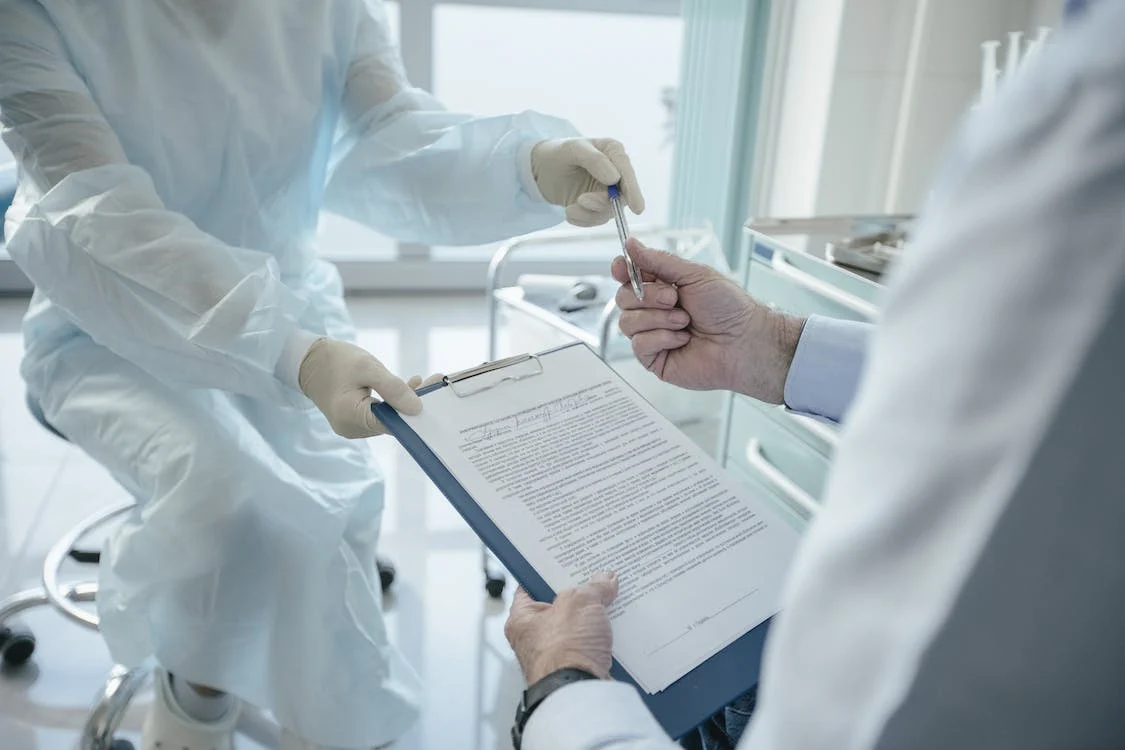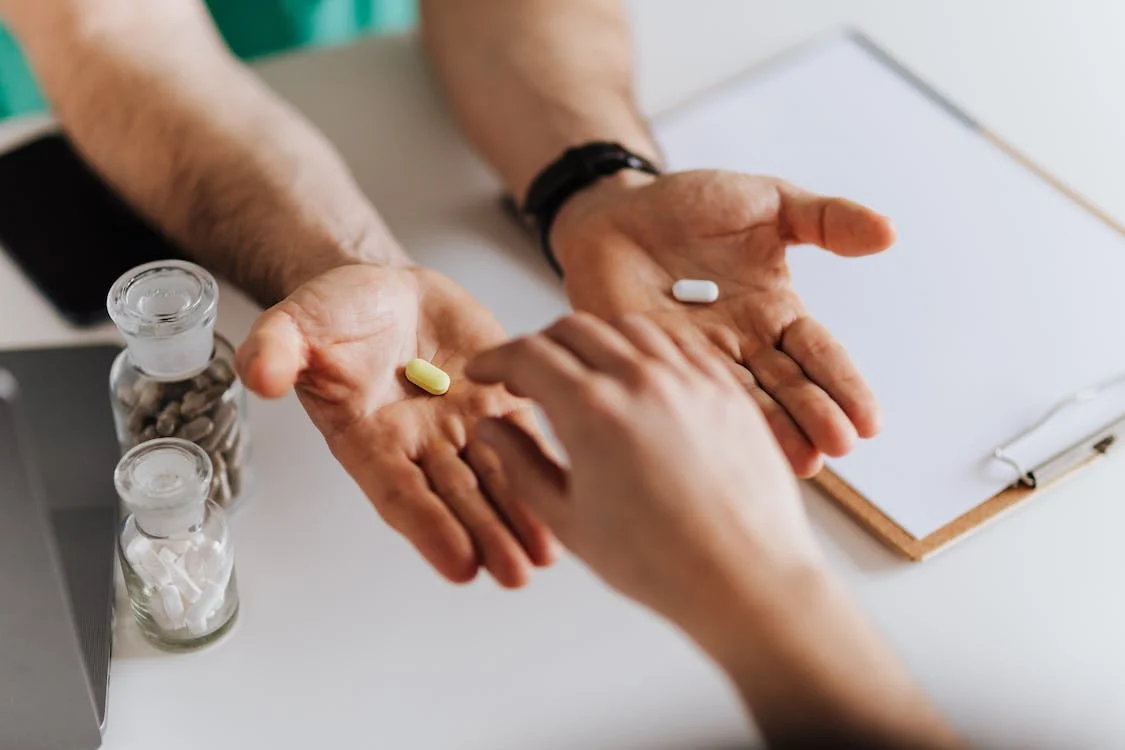Everything To Know About Medical Identity Theft
What Is Medical Identity Theft?

According to the Federal Trade Commission, 19 people become victims of identity theft and fraud each minute. Similarly to identity theft, medical identity theft is when someone uses an individual’s personal information – such as their name, social security number, and health insurance account number or Medicare number. With this information, thieves can see a doctor, receive prescription drugs, purchase medical devices, and submit claims with insurance providers all under your name. And that’s not all. If the thief’s health information is mixed up with yours, it could have a serious negative impact on the medical care you’re able to get, the health benefits you’re provided, and it could destroy your credit.
Identity theft criminals often target senior citizens and children. In a recent case, a certified nursing assistant was charged with stealing the personal information of several elderly individuals in Retirement homes. The thief managed to steal financial documents belonging to the residents and use them to apply for credit cards online. And for children, an estimated 300 percent increase in child identity theft has occurred over the course of two years. Identity theft is becoming more common and more dangerous as thieves learn new ways to get hold of what is not theirs. By learning about the signs to look out for if someone is stealing your medical information and how to protect your medical information, you’ll be a lot less likely to face such a situation.
How Can Medical Identity Theft Occur?
Identity theft is prevailing, but why would a thief get out of their way and go after medical identity theft? At first glance, it’s easy to overlook the severity of these scams. Most of us are unaware of how harmful they can be to us. But unfortunately, a thief’s health information and history shared with yours can easily ruin both your credit and reputation. Because your medical information is so valuable, thieves can do a number of things with your information, from using it for themselves to selling it on the Dark Web for profit. By understanding how valuable your medical information really is, you’ll begin to think twice before leaving it in your car or procrastinating a trip to your mailbox.

How To Protect Yourself from Medical Identity Theft
You were billed for a prescription that wasn’t yours. Or you got a bill for a medical procedure you don’t remember requesting. Or maybe you received a misdiagnosis for a surgery you didn’t have. You probably assumed it was an error from your healthcare provider. But what if you were a victim of medical identity theft and you didn’t know it?
Medical identity theft is so prevalent that most of us don’t see it coming or don’t think it will ever happen to us.
A recent case of medical identity theft occurred when a mother of four was charged with giving birth to a meth-addicted baby. But the woman wasn’t pregnant, and she hadn’t recently given birth. Unknowingly, a meth addict broke into the woman’s car and stole her driver’s license. The thief then used it at the hospital to receive medical benefits during childbirth. After months of DNA testing and court appearances, the woman was exonerated of any blame but was still left having to pay over $10,000 in medical bills!
Medical identity theft is a growing menace. And to obtain a person’s medical records, a thief doesn’t have to do much. By simply getting hold of your wallet with your health insurance card in it, or finding medical records you threw away, anybody can take advantage of your medical benefits and pretend to be you.
To carry out any medical identity theft, all the thief needs is your Personally Identifiable Information (PII). This consists of your full name, date of birth, contact information, social security number, driver’s license, passport information or financial records. Having this information fall into the wrong hands can lead to serious consequences.
Protect documents that contain your medical information
To ensure you don’t become another victim of identity theft, let’s get into what you need to know about medical identity theft and what information you could be leaving out that could make you a prime target to thieves and criminals.
Keep your medical records, health insurance records, and any other documents with your medical information in a safe place. These may include:
- Health insurance enrollment forms
- Health insurance cards
- Prescriptions
- Prescription bottles
- Billing statements
- Explanation of benefits statements from your health insurance company
Most records consist of important information that can be useful to a thief. Such as the doctor you visited, the cost of those services, how much your health insurance company covered, and how much you’ll have to pay. Thieves are aware of the common places people may leave their medical information. The most common places thieves look for are: cars, mailboxes, garbage cans, wallets and purses.
Getting Rid of Important Documents
When we don’t have use in bills, receipts or documents anymore, we throw them away. Thieves take advantage of this, so you may want to take a few steps before getting rid of anything that could provide personal information about you. If you have medical bills or documents that you don’t want to keep anymore. Either because you’ve scanned them or have a digital copy available, you should shred or destroy them before disposing of them.
If it’s something like a prescription bottle, you can use a marker to block out any medical or personal information that could be helpful to the thief. If you’re expecting statements with medical information in the mail, be sure to take your mail out of the mailbox as soon as possible. To limit the amount of medical information you get by mail, you can consider getting your medical bills or explanation benefits through an online portal.

Protect Your Medical Information From Scammers and Thieves
The most important tool to keeping your information safe and avoid medical identity theft is to refrain from giving your personal or medical information to just anybody who calls asking for it. Unexpected calls, emails or texts could lead to a scammer trying to trick you into giving their information. There are signs to look out for if someone is using your medical information. Besides taking these steps to protect your medical information, it’s important to know how to tell if someone is using your information. Here are a few warning signs to look out for:
- Getting bills from your doctor for services that aren’t familiar to you
- Errors in your explanation of benefits statement such as prescription medication or services you didn’t take
- Receiving a call from a debt collector about a medical debt you don’t owe
- Credit report and medical debt collection notices that you don’t recognize
- A notice from your health insurance company saying you’ve reached your benefit limit
- You are denied insurance coverage because your medical records show you a pre-existing condition you don’t have
If you think someone is using your personal information to see a doctor, get prescription drugs, or submit claims with your insurance provider, there are things you can do that will limit the damage:
1- Get hold of your medical records
Contact each doctor, hospital, pharmacy, laboratory and health insurance company where the thief may have used your information for themselves. Explain your situation and get copies of your medical records as you may have to submit records request forms.
2- Review and report errors
Take action and report any errors to your health care provider in writing.
3- Observe your credit reports
You can get hold of your free credit reports from three credit bureaus at annualcreditreport.com or call 1-877-322-8228.

Keep Your Medical Information and History Private With FOUND ME
Now that we’ve covered the importance of keeping your medical information private, there are steps you can take to help you with the process while keeping track of all your records in one place. FOUND ME is a company that can help you do just that.
FOUND ME offers interactive emergency bracelets, necklaces and cards with QR codes that once scanned can provide vital medical information… but rest assured, it’s all confidential! In case of emergencies (car accident, heart failure, etc) paramedics or first responders may scan the QR code and before accessing your medical info will need to get permission from emergency contacts that you trust and have selected on the FOUND ME App. Up to five people in your emergency contacts can give permission to a first responder scanning your bracelet.
However if you feel comfortable having the information provided without permission, you can simply opt for that on the settings in the FOUND ME app… Your level of security is up to you. FOUND ME App can also help you keep track of your medical records while keeping them all in one secure place. FOUND ME solutions meet the latest global data security and encryption standards to fight identity theft. To learn more about FOUND ME and everything it has to offer, visit FOUND ME
{
“@context”: “https://schema.org”,
“@type”: “BlogPosting”,
“mainEntityOfPage”: {
“@type”: “WebPage”,
“@id”: “https://foundme.com/everything-to-know-about-medical-identity-theft/”
},
“headline”: “Everything To Know About Medical Identity Theft”,
“description”: “Know everything about Medical Identity Theft, how scammers can steal your medical identity. How to prevent medical theft with FoundMe trackers QR codes”,
“Image”: “https://babyboomer.org/wp-content/uploads/2023/01/fngf.jpg”,
“author”: {
“@type”: “Organization”,
“name”: “Admin”,
“url”: “https://foundme.com/”
},
“publisher”: {
“@type”: “Organization”,
“name”: “Found Me”,
“logo”: {
“@type”: “ImageObject”,
“url”: “http://foundme.com/wp-content/uploads/2022/02/favicon-1.png”
}
},
“datePublished”: “2023-01-16”,
“dateModified”: “2023-01-16”
}
The post Everything To Know About Medical Identity Theft appeared first on FOUND ME.

























